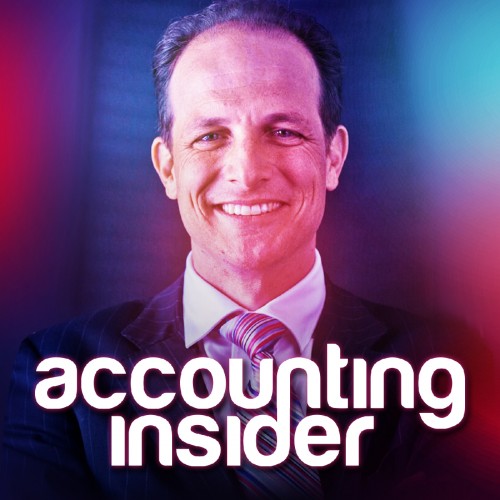Kym Nitschke shares his insights, and talks you through the four key documents you need to organise NOW, when accounting for death. (Don’t wait)
Listen and subscribe on iTunes.
Andrew: Welcome to Accounting Insider. I’m Andrew Montesi with Kym Nitschke, and Kym, in my show notes here I see; accounting for the death.
Kym: It’s very important. Yes we need to talk about it.
Andrew: Is it something that you think people take enough notice of, they care enough about?
Kym: I see this every day. To get someone who has got all the stuff that we’re talking about today is very rare and it shouldn’t be like that. Because people work so hard all their life, only to have it not completely mapped out as to where it’s all going to go should the worst happen.
Andrew: So you’re talking about people who have assets, investments, property, stuff, but their estates aren’t lined up properly.
Kym: Exactly. There’s so much to it like, even just starting out as an individual you’re building up wealth over a period of time. If you don’t have a will you have no say in where that goes so the government effectively decides.
Now I’m telling you this through the eyes of an accountant. I’m not a lawyer. This isn’t legal advice, that’s the disclaimer, however, I think that because I see it so much, I’ve got a useful insight into my suggestions to tips and tricks on each of these. Today we’re going to talk about the four documents which are must-haves.
Andrew: What are they, the fundamentals?
Kym: The first one is an Enduring Power Of Attorney. The second one is a Will. The third one is a Binding Death Nomination and the fourth one is an Advanced Care Directive.
Andrew: But start at the top, which was?
Kym: Enduring Power of Attorney. This document is basically for someone like you and me who has a stroke out of the blue and financial decisions need to be made. Unless there’s a document in place, the Public Trustee makes those decisions for you.
This is a really easy document to generate, and it’s a case of selecting someone you trust who can make financial decisions on your behalf.
Andrew: So what type of person are we talking about?
Kym: We’ve got to get this straight, so this is what you use while you’re alive.
Andrew: So you’re alive but you don’t have the capacity to make big decisions?
Kym: That’s right.
Andrew: So you want someone that could be your partner, it could be your accountant.
Kym: Accountant is a good one, and I know I blow my own trumpet here, but we deal with it so often, we become good at it and we know the questions to ask, the decisions to make.
Too many people choose their daughter or the person who lives across the road. Now, these people don’t have the financial acumen, IQ, whatever it is to be able to bring value to the table and act on that money really diligently as if it was their own money. Often, they’ll make silly decisions. They won’t ask the right questions, they might get taken for a ride.
You know if there’s property involved, that’s usually the big ticket item. Do they have the experience to make the right decisions with selling it, renting it out, refinancing it and all that stuff. Decisions need to be made. Life doesn’t stop when people have strokes or have heart attacks or whatever.
It does happen. I’ve got a situation where this happened recently to a client who was in a second marriage. His wife had a stroke out of the blue and she didn’t have an Enduring Power of Attorney.
In that situation, it was extremely awkward because her family automatically stepped in, but they weren’t the people that she lived with every night. They needed to buy a new car to get her around and needed to buy a wheelchair. All of those decisions and all of those checks needed to be signed off by the Public Trustees Board. That takes so much time, and you’ve got to put your case forward, you’ve got to book a meeting. It’s just totally inoperable.
What actually happened down the track was that the Public Trustee said this was crazy. There’s obviously forms you can sign, but they actually appointed their own Power of Attorney down the track to make the decision on their behalf but it took about a year and a half.
Andrew: To set up this document, this Power of Attorney, it’s not hard. It’s an hours work and a few hundred bucks and you need a lawyer.
Kym: Absolutely, and there are a couple of little things that are quite interesting about the document. I can make one today and you have to get it signed in front of a JP or a Commissioner for taking Affidavits. But you don’t have to get the person you’re giving the attorney to to sign it at that point.
They can sign it a year later or two years later which is weird, but they only have to know about it. I think out of courtesy you let them know, but if they’re not going to be bumping into you before you jump on a plane and go to Europe or whatever, you can still make the document and it still has effect.
The other thing to know about this as well is as soon as you sign that document it’s effective, it’s straightaway. It doesn’t have a use by date, and it doesn’t have a kick-in date. It’s as soon as it activated.
Andrew: Next document, the one that most people would have at least heard of or should know something about, the will.
Kym: This is the big one. This is really important. You’ve got to have a Will. Period. Now there is a lot of DIYer’s out there.
Andrew: They’re shocking.
Kym: It’s better than nothing. You can get one from the post office. I don’t care, just get one.
Andrew: I know lawyers who would be pulling their hair out hearing you talk about DIYers.
Kym: I know but it’s better than not having one at all. I’m not advocating that at all, I’m just saying that’s your starting point, it’s the cheapest. You can get them online, but if you’ve got anything worth a few bob its worth sitting down with a lawyer and getting it all mapped out completely. These guys are expert at it and it’s not complicated, but you need to document exactly what you want to go where.
Andrew: Technically, almost anything can be a Will. I know of cases of notes written on Post-It notes. There was one apparently something scribbled on the back of a couch; this is a lawyer telling me. There’s like an audio recording on a DVD, all being granted probate. But there’s an enormous process with the DIY or handwritten or handmade Wills.
Kym: I remember catching up with a lawyer for lunch and he said that he drafted a document a Will for a client who ran a brothel; they got killed. It was unsigned, but it went to court and because he could prove from the file notes of meetings and conversations he had, the unsigned Will stood up.
The wills are like this legislation that’s been documented hundreds of years ago which we’re still using today, so it’s evolved over time. It’s common law. It can be like you say it can be a letter. It’s bizarre what comes up. These codicils, they’re bizarre things like, people don’t want to spend the money to get their will updated. So they just write a little note, staple it to the back of their Will and the court actually upholds those documents and say yes, that is actually what that person wanted as their last wishes so we honour that.
I think there are a couple of things that I’ve learnt in dealing with Wills, one is if you’ve got kids, make it even, make it fair. It’s going to create a lot of heartache where you make things uneven. This is what I see too many times. Parents try to even up the playing field by making unequal distributions as part of the Will. It’s a nightmare. It creates so much heartache. Don’t do it.
The flipside to that is if you really really really want to do it, you have to write the story. Explain exactly why you are doing it so that there’s no cause for confusion. There’s no opportunity for someone to challenge it down the track because your intentions are documented and crystal clear.
Andrew: Estate disputes are a massive growth area for law firms for exactly that reason. It’s interesting, particularly because there’s also blended families. There’ a massive challenge when you’ve got kids. I remember hearing someone saying even if there might be an estranged family member, just give them something. Even if it’s small just to prevent the threat of a dispute. Even though you won’t be around to know about it, it’s an absolute financial psychological stressful disaster for a family to go through a dispute.
Kym: The crazy thing about Wills and not a lot of people know this is that for someone to challenge the Will, the money to fight that comes out of the proceeds of the estate. So it’s like if you’re disgruntled in any way at all, lodge a complaint. There’s nothing to stop you. You’ve obviously got to have grounds for it but you don’t have to pay for it. The person who was accumulating the assets pays for it by default which is crazy.
I think you want to try to avoid that as best you can, so I think the golden rule is to try to be as even as you can, and be upfront and let people know what distributions you’re making so it’s not a big surprise when you go. I know that’s not comfortable to do that, but let’s have the discussion now. I think everyone would prefer that rather than being kept in the dark and having this big surprise at the end. If it’s even, well then there’s probably not any reason to do that, but if there’s some contentious issue in there, get the family together and have a meeting with all those concerned. Have an around the table conversation, and it can just create a real opportunity for everyone to put forward their comments and thoughts to have a really good conversation.
Andrew: This is why it’s key to get advice because a good lawyer who is experienced in Wills and estates is going to give you advice of you should do this and you shouldn’t do that to prevent a dispute. The problem with the DIY stuff is while it’s better than nothing you’re not going to be acting on advice about these areas that are open for dispute.
What are you looking up? He’s going through his mobile which means he’s got something for me.
Kym: Robert Holmes à Court died at 53 worth $2 billion did not have a will, so the person who benefits from that is the legal profession. All the beneficiaries lose because no one understands what’s supposed to happen and once that persons gone, it’s very easy to put together the intentions and rig conversations that you had with that person but it just muddies the water and makes it even more confusing.
While we’re on that, I think it’s important to talk about the executor and their role of the executor. I think again it’s a really good idea to get an accountant as an executor because again you’re dealing with money. You’re dividing assets up between family members.
Andrew: It’s also a neutral person.
Kym: Impartial, independent. You know I’ve seen the bad side to this. I’ve been to the Supreme Court with these sorts of will that are in dispute and I couldn’t believe that it goes to the highest court. You know, why would it go to the Supreme Court, it’s only a will.
The judge actually said to me Kym, there’s so much emotion and there’s such difficult decisions for family members to come and deal with, that we as a legal profession feels that this court is the only one worthy of dealing with the complexities of wills and estates.
So when you understand it from that point of view, yes, this is tremendously difficult. It is extremely hard trying to understand the wishes of the person who’s died, so that’s why it does go to the Supreme Court. It’s super expensive. Get it all down. Make it as clear as you can so there aren’t problems down the track.
The other thing I want to mention to is if you’ve got companies, super funds, start thinking about appointing people as Directors before you die because it’s a lot harder to do that after you’ve passed away.
When the opportunity arises, bring them in as Directors. All the shares can transfer after a person has died and they can be dealt with in the will. That’s much easier, but I have had situations where people have died as the Director and it’s been difficult; the courts have challenged new Directors coming in after that person’s died because it wasn’t well enough documented. It’s difficult to document the appointment of directors in wills. So I think that’s a tip to avoid that sort of issue down the track.
Andrew: Personally, have you dealt with these issues amongst family?
Kym: Yes unfortunately I have, and with the will, I think this is a school of thought that the person who’s dying, if they’re well off, they’ve got all their affairs totally stitched up. But I take the different approach now because I’ve seen it in my own situation. Someone died and we all thought they had it all together with wills. Their will was not altogether. There was so many ways that I could have brought value to the table, introducing Testamentary Trusts, asking for clearer directions on bits and pieces that were distributed and why they were distributed in that manner.
In that situation, we ended up going to the Supreme Court and that was awful. It was an experience no one wants to go through, but I’ve learnt so much from it. There was so much involved in that insofar as there was also forensic accounting that we were doing for that, which brought out a tremendous amount of information.
So try to avoid the courts, try to be even, try to be clear.
Andrew: What’s the next important document?
Kym: Advance Care Directive. This is really a medical document, but all these four documents we have on our checklist when we on-board someone into our firm, we make sure that they’re all up to date. A lot of people don’t but it’s very very important that you do.
Advance Care Directive is a direction to people, who are in the medical profession about what your intentions are in terms of mainly resuscitation if you get injured. If you want them to keep you alive on life support you tick a box. If you don’t then you advise that you don’t and why you don’t want to.
Hospitals are reluctant to make a decision until they’ve got that document in front of them. You know, this is the classic case is; we’re driving home from work and have an awful car accident. On life support, do we turn the machine off or not? Now if we’ve got this Advance Care Directive, there’s other stuff in there as well but that’s probably the most fundamental.
Andrew: Important medical decision-making.
Kym: Yes, that’s going to give a tremendous insight to the minds of the doctors and those people looking after you as to what you want to exactly happen to you when you’re in that situation. Because obviously you’re not in the position to make that decision and it makes it easier for those around you if you’ve specified it.
No, it’s really good. This sort of document is available online, there are DIY kits. Governments are encouraging people to do it and making it easier for those in the medical profession to provide high-level care in line with exactly what you would want to happen to you.
Andrew: Next, Binding Death Nomination.
Kym: Now this is a tremendous tool and this is overlooked as well, but this is a direction that you are giving to the Trustees of your superannuation fund in how you want payments to be made to dependents. Now, this is like to a spouse or kids.
This is a tremendous document again because it’s got tax planning opportunities in it. Now for me, if I pass away I can make a lump sum distribution to my wife. Now if she can prove she is dependent on me she receives that tax free. In a lot of these situations where we are administering estates, as soon as someone passes away all of their money gets locked up. As soon as the banks get an email or any information that suggests that someone has passed away, all the bank accounts go into lockdown mode.
That makes it really awkward for a spouse to be able to pay bills, number one, funeral expenses, just to be able to keep food on the table and keep paying the bills. These documents can be basically cashed in to the super fund almost immediately. You give the document to the operator of the superfund, they turnaround and give you the money pretty well straightaway.
They are beautiful that they make it very clear to make your instructions clear. Like if I want $100, 000 to go to my wife as soon as I die, the guy running the superfund knows very clearly what my intentions are, but it frees up the cash and it’s really easy to use it and it happens very quickly and they’re not going to pay tax on that money.
The trick with these is they only last for three years and they’ve got to be constantly updated. But it’s a really really good document to have on file and your accountant should have all of these documents on file and originals in their possession, and everyone in your family should know your accountant has got these documents. You know they’re no good if they’re in a filing cabinet. They might as well not be prepared, or if they’re with a lawyer or whoever that is important. But it’s also important that your accountant has got them so you’ve got one person who the whole family knows to call.
I’ve had phone calls at seven o’clock on a Sunday morning when people have passed away, but they all know I’ve got all the documents. It’s been a tremendous advantage for them when that person’s passed away that they know that they can get that information from me.
Andrew: So for someone who is listening to this saying, I haven’t organised any of this, where do they start?
Kym: Well I think you start by speaking to your accountant, making an appointment with a lawyer, but even before you do that I would just Google them all. Just get yourself up to speed with the basic knowledge so that you know the right questions to ask then I’d go and see an expert and book in to get these documents generated, no question.
Andrew: Obviously get advice to your own specific situation because I would imagine that for someone who has minimal assets compared to someone who has multiple businesses, properties the circumstances are going to be completely different.
Kym: Exactly and you scale it so the costs aren’t that expensive and if you’ve built a relationship with a lawyer for example, it’s a really good idea to go and update your wills on a regular basis. They can just pull the old document off the system and it’s not like the legislation’s constantly changing. They can update it and it’s usually for changes in your family circumstances, like if your kids are getting older, or you don’t want to use that executor anymore, or this person’s moved into your life so you want to make allowances for that. It’s all of those sorts of things that happen.
So you’ve got to mark in your diary, every January or every second or third year update these wills, update all these documents. Make sure your Power of Attorney has got the person in there that you want. Your Advanced Care Directive is up to date, download the updated version off the net for the documents that you can, with the Binding Death Nomination for the superfund.
Usually if you’ve got your own self-managed superfund, speak to your lawyer about drafting a new document for that fund. But if you’re with an industry fund they will have that document. You can just ring up and ask for it and make a note in your diary and don’t let it go over three years.
Andrew: Well Kym to be honest I feel a bit flat with all this talk about death. I need some type of weird Kym story to come out just to finish this off on a high. Have you got anything for us?
Kym: Unfortunately, all the ones on death are bad.
Andrew: Ultimately, but ultimately, very importantly I’m extremely disorganised in this space. Even I have a will and all the required documents, so if I have it all the listeners out there should as well.
Kym: I think I am saying it’s bad but you can make it good. If I had my way with all the people that I work with they’re all up to date and this won’t be a problem. It would be a pleasurable experience for those left, so let’s turn something bad into something good.
Andrew: A good note to finish on. Thanks for listening to Accounting Insider. Visit www.accountinginsider.net and for advice in this space of course contact [email protected]
Listen to Accounting Insider on iTunes and SoundCloud.
Need accounting, financial or property advice? Talk to the Accounting Insider himself. Get in touch.














